The Climate & Care Initiative Fund: apply now!
Application template
Call for Proposals Update
Thank you for your interest in the Climate & Care Initiative Fund. We are pleased to share that we have received over 600 proposals and are dedicating additional time to carefully evaluate each one.

We appreciate your patience and commitment. For more information or inquiries, please contact us at climateandcareinitiative@avina.net.
About this funding opportunity
Key information
All you need to know
Your organization or initiative should:
- Demonstrate a clear link between climate action and care work.
- Empower women, grassroots organizations and local communities to lead sustainable practices.
- Foster a feminist just transition that prioritizes equity and sustainability.
- Be led by a Global South organization and implemented in one of the prioritized countries.
- Call for proposals opens: 29th of October, 2024
- Informative sessions: November 6th (English and French) and 7th (Spanish and Portuguese), 2024
- Submission deadline: 10th of December, 2024
- Announcement of selected projects: 20th of December, 2024
To provide more clarity on the type of proposals the Fund aims to finance, below are some thematic priorities focused on the intersections of the climate crisis and the care crisis. We invite you to submit proposals that address one or more of these thematic priorities.
- Initiatives and organizations addressing the increasing demand for care as a result of the impacts of climate change. Some examples are initiatives that:
- Make visible how care needs increase and become more complex after an extreme climate event or due to the impacts of climate change.
- Propose solutions to reduce unpaid care work generated by the effects of climate change, such as improving food security, access to healthcare, access to clean water and sanitation, etc.
- Propose initiatives to redistribute care responsibilities with social co-responsibility (between the private sector, the State, and communities, and within communities, between men and women) in contexts affected by climate change.
- Proposals to prevent and address gender-based violence that can arise after a climate disaster and its connection to care.
- Initiatives to amplify the voices of caregivers and enable their participation in decision-making spaces regarding alternatives and proposals to address climate change.
- Initiatives to make visible, quantify, reduce, or redistribute the care burden for women and girls displaced by climate events.
- Strengthening community care networks as a strategy for climate change adaptation.
- Initiatives or organizations that aim to incorporate a care perspective and gender equality into actions to mitigate carbon emissions and reduce vulnerability to climate change. Some examples are initiatives that:
- Reforestation and forest conservation projects, land rehabilitation, composting, organic agriculture, agroforestry, community water management, rainwater harvesting systems, among others, incorporating care actions, for example:
- Aim to ensure that women have equal access and participation in decision-making.
- Seek to measure and highlight through data and studies the care burden and care gaps between women and men in the community or sector.
- Generate alternatives to avoid overburdening women with unpaid work and to reduce the care work they perform, such as creating care spaces for dependents (elderly, children, people with disabilities).
- Promote the shared responsibility of men in caregiving.
- Initiatives or organizations that promote decent working conditions with a gender and care perspective within the framework of just transitions. Some examples are initiatives that:
- Contribute to improving working conditions for workers in green economy sectors (including paid care work: domestic workers, those in the healthcare, education, recycling sectors, etc.).
- Strengthen employment capacities in the care sector and highlight this labor sector as an alternative to job loss caused by energy transition processes.
- Promote organizational processes (unions, collectives) for women with a care and gender perspective in green economy sectors, including care work.
- Implement advocacy processes in subnational, national, or global decision-making spaces, led by care sector workers, to highlight the need for strategies that address climate and care in an integrated manner.
The Climate and Care fund is open to grassroots organizations, NGOs, and social movements based in Latin America, the Caribbean, and Sub-Saharan Africa. Eligible projects must meet the following criteria:
- Climate and Care Nexus: The proposal must clearly establish the link between climate change and care. The organization should clearly explain how both the climate change and care perspectives are included. While the organization may have prior experience in only one of these areas (climate or care), the proposal must visibly address both agendas. References will be required to demonstrate the prior experience of all organizations, particularly of the lead organization in at least one of the agendas.
- Coherence of the Proposal: The proposal must include clear objectives, goals, responsibilities, and an action plan. The logic behind the proposal should be easy to follow.
- Lead Organization(s) from the Global South: The lead organization presenting and implementing the proposal must be a civil society organization, grassroots organization, or movement from the Global South. While proposals can (and are encouraged to) be submitted in partnership with other organizations, the lead organization must be from the Global South and have prior experience in at least one of the agendas.
- Legal Personality or Fiscal Sponsor: The lead organization submitting the proposal must be legally constituted or have a fiscal sponsor.
- Phase: The proposal can be in either the design or implementation phase at the time of the fund application. If the proposal is still in the design phase, the lead organization must demonstrate relevant prior experience.
- Gender and Human Rights Perspective: The organizations and actions included in the proposal must incorporate a gender and human rights perspective.
- Linking Local Work with Advocacy Processes: The lead organization must propose how their local actions can influence local, regional, or international decision-making spaces. They must also be willing to collaborate with the Climate and Care Initiative to achieve this.
The Climate & Care Initiative Fund will accept proposals from the following countries:
- Latin America and the Caribbean:
Argentina, Barbados, Bolivia, Brazil, Colombia, Costa Rica, Cuba, Ecuador, Guatemala, Jamaica, Mexico, Peru, Panama, Dominican Republic, and Uruguay.
- Sub-Saharan Africa
Cape Verde, Ivory Coast, Ethiopia, Ghana, Kenya, Madagascar, Mauritius, Namibia, Niger, Nigeria, Sierra Leone, South Africa, Uganda, Zambia, Zimbabwe.
The Fund has a total of USD$600,000. Each project will receive up to USD$50,000, depending on the proposals submitted. Initiatives funded must be implemented within a maximum period of 14 months.
After the application deadline on December 10, 2024, the selection committee of the Climate and Care Initiative will screen out inapplicable initiatives and evaluate the applicable ones along with their references. This will lead to a selection process by the same committee, which will notify the chosen proposals around December 20th, 2024.
How to Apply
Application resources
Have Questions?
Download our comprehensive FAQ document for detailed answers about the application process, eligibility, and fund priorities.
climateandcareinitiative@avina.net





Call for Proposals Closed
Thank you for your interest in the Climate & Care Initiative Fund. The call for proposals is now closed.

We appreciate your engagement and look forward to supporting impactful initiatives in the future.